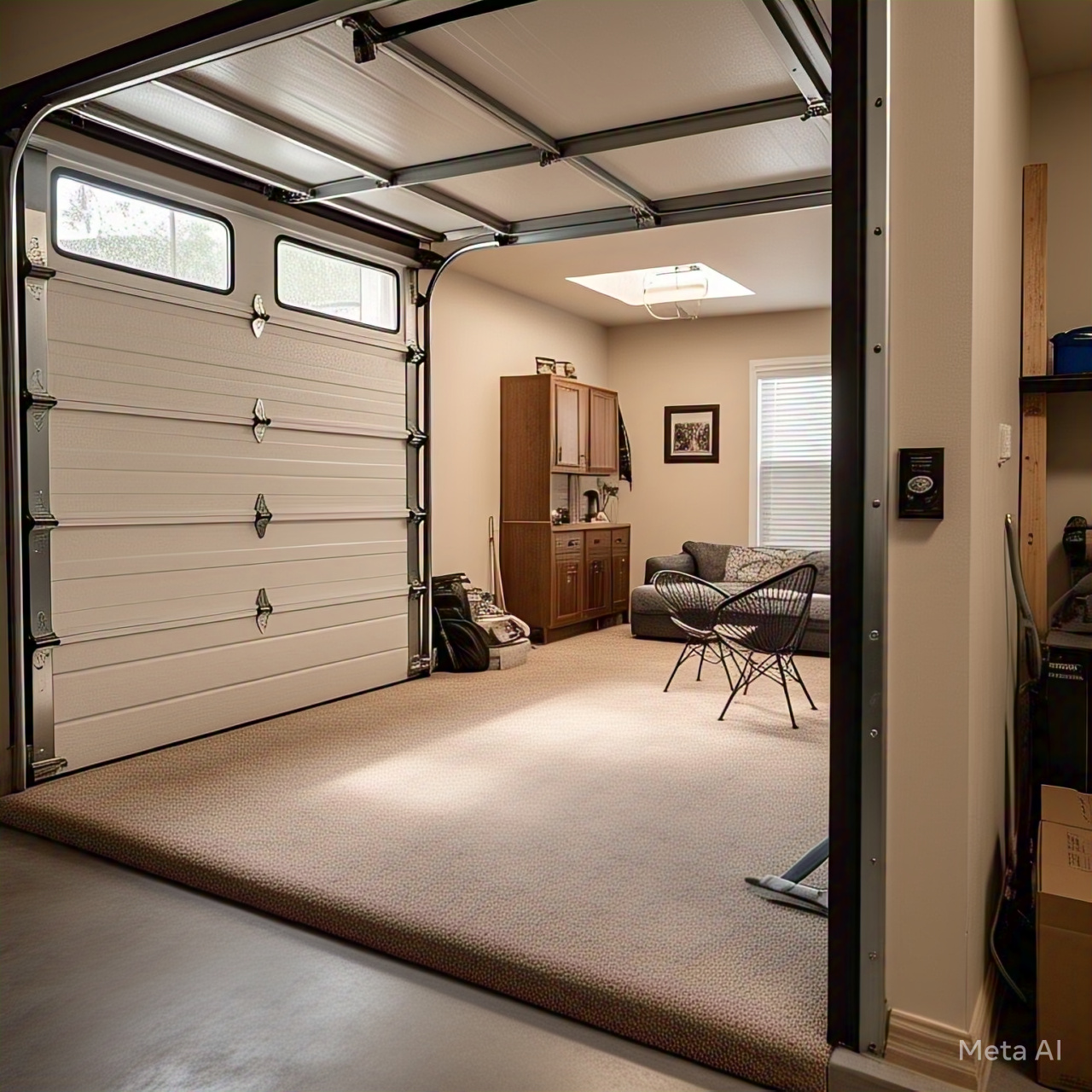Looking to add living space without a full house extension? Converting a garage can be an option. Whether you need an extra bedroom, home office or utility room, turning an existing garage into a habitable room can give you valuable extra living space. But is it for you? In this article we’ll look at costs, property value and key factors like planning permission, building regulations and structural considerations.
Benefits of a Garage Conversion
1. More Living Space
One of the main reasons homeowners consider a garage conversion is to gain living space. If your garage is underutilised as storage space for garden tools or old furniture, converting it into a new living space can make your home more functional. Whether you’re adding an extra room for a growing family or repurposing a single garage as a home office, it’s a great way to add space without going out with your house’s structure.
2. Increased Property Value
A well planned garage conversion add can boost your property value especially if it makes the home more usable. Estate agents say homes with extra habitable rooms are more attractive to buyers, particularly in areas where extra living space is in high demand.
3. Cheaper than an Extension
Compared to a traditional house extension, a garage conversion is usually cheaper since the existing structure is already there. However the garage conversion cost can vary depending on building costs, labour cost and the costs involved in upgrading insulation, ventilation and structural modifications. A garage survey can help you properly assess the costs.
4. Flexibility in Design
A converted garage can be used for multiple purposes, from a utility room to an extra bedroom or even a self contained annexe. If you have a detached garage you can even turn it into a separate rental unit, creating extra income.
Things to Consider
1. Loss of Storage and Parking
Converting a garage means giving up storage space and possibly your street parking. If you use your garage door to store your car or other valuables, this might be a concern. Some homeowners choose to keep part of the garage as more storage space, keeping a section for garden tools or bikes.
2. Planning Permission & Building Regulations
Many garage conversions fall under permitted development rights but you should always check with your local planning office or local council. Some areas, especially within a conservation area, have stricter rules. The building regulations set by the building control department will require your new living space to meet standards for insulation, fire safety and ventilation.
3. Ensuring the Structure is Sound
Not all garages are structurally sound enough for conversion. A structural engineer may need to inspect the existing slab, the wall separating the main house and the overall building project. A damp-proof course, proper floor covering and insulation will be needed to make the space energy efficient and comfortable.
4. Additional Costs and Considerations
Beyond the garage conversion cost, other expenses include upgrading the existing garage door (or replacing it with a new wall), installing windows and ensuring adequate heating. A diy garage conversion can save you money, but hiring professionals ensures the job meets lawful development standards.
Understanding the Different Types of Garage Conversions
When planning a garage conversion, you need to consider the type of garage you have, as this will impact the garage conversion cost and the complexity of the project. An attached garage that shares a wall with the main house is usually easier to convert since it can utilise the existing heating and electrical systems. A detached garage may require more work to ensure it’s properly insulated and connected to utilities.
An integral garage (built into the structure of the home) may provide a smoother transition into the main living spaces, whereas a single garage may have more limitations due to its narrower footprint. If you’re unsure how to best use the existing space, consulting a professional can help determine the most efficient layout.
How to Ensure a Successful Garage Conversion
A garage conversion requires careful thought, particularly when it comes to insulation, ventilation and damp-proofing. Many garage doors aren’t designed to be insulated so may need to be replaced with a new wall with energy-efficient windows and doors. If the slab isn’t level or doesn’t have a damp proof course then extra work will be required to make the space habitable.
Also check with your local planning office to see if your project falls under permitted development or if you need extra approval. Some homeowners underestimate the building control department who ensure compliance with safety and structural standards.
If You’re Going to Sell in the Future
If you’re planning to convert a garage it’s worth considering the impact on future buyers. In some cases buyers may want a garage for more storage space or street parking especially if parking is limited in the area. Speak to your local estate agents to see if a garage conversion will add or detract from your property.
Also making your converted garage blend in with the rest of the house can add value. Features such as matching floor covering, proper insulation and making it feel like a natural extension of your main living areas can make the transition more attractive to potential buyers.
DIY Garage Conversion vs Hiring Professionals
Some homeowners consider a DIY garage conversion to save money on labour costs but you need to understand the costs involved beyond just materials. Ensuring electrical work, plumbing and insulation meet building regulations requires expertise and any mistakes will cost you to correct.
Hiring professionals will also give you accurate costs so you can budget correctly for everything from wall separating reinforcements to energy efficient heating options. A professional survey will also confirm your garage is structurally sound before you start your building project.
How Long Does a Garage Conversion Take?
The time it takes to convert a garage depends on the existing structure, the work required and if planning permission is needed. A simple single garage conversion can take 3-6 weeks, a more complex project with major structural changes can take longer. Add to your timeline: get approval from local council. If conservation area, this may take longer.
Is a Garage Conversion Right for You?
If you need more space and your garage isn’t being used effectively, a garage conversion can be a smart investment. However, it’s essential to consult with your local authority and local planning authority to understand the regulations, as well as speak to local estate agents to gauge the impact on your property value.
For expert guidance on garage conversions and to get accurate costs, Proable Group can help you turn your existing space into a functional, liveable room. Get in touch today to start planning your garage conversion!





